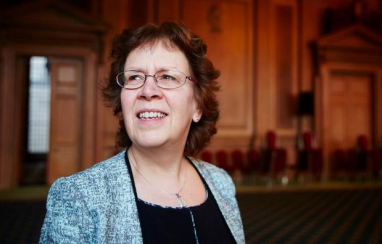- nike running shoes sell for sale on walmart card - 200 - order nike shox online sale shoes for women FV2923
- nike air jordan 1 outlet
- Super Max Perfect Air Jordan 5 Women
- SBD - 600 Mid GS Medium Soft Pink FD8780 , NIKE◆AIR JORDAN 5 RETRO TORO BRAVO 27.5cm RED DD0587 - 116 - NIKE◆AIR JORDAN 5 RETRO TORO BRAVO 27.5cm RED DD0587-600
- the nike kobe a d exodus releases in new flavors
- air jordan xxxv cq4227 004
- air force 1 shadow
- Air Jordan 1 Mid Bred 554724 074 2020 Release Date 4
- air jordan 4 white tech grey black fire red ct8527 100 release date
- air jordan spring 2021 retro collection release date info
- Home
- News and analysis
- Info hubs
- Events
- Video
- Case Studies
- About us
- Magazine
- Advertising
Produced for the industry by the Association for Consultancy and Engineering
Features
Public support crucial to get infrastructure cities need, says Leeds City Council chief
Public support for local infrastructure is vital if cities are to get the development they need. Andy Walker went to Leeds and spoke to the leader of Leeds City Council and chair of the ten city-strong Core Cities group, Judith Blake, about the benefits of getting the public onside with the city’s transport plans.

Leeds City Council leader Judith Blake is clear about the importance of winning over the public’s support when planning infrastructure, following a major consultation exercise in the city on Leeds’s transport plans. “The need to go out, consult with people, work with people and develop schemes with people, not just going with the finished article and presenting it to them when they either like it or they don’t, is absolutely critical,” she says.
“Too many schemes have failed because they fail to properly consult, so for us this is really important. It’s also a real way of getting to understand the transport needs of people out in our communities, what they will use and what they won’t use and how that can inform better decision making,” Blake says.
“When I first became a councillor I struggled to get highways officers to come out into our communities to talk to people, but once they started it, they loved it,” she tells me. “They got the feedback and they got the recognition for the great work that they do, but also they ended up with better schemes as a result. By getting that level of engagement you create great schemes that people actually want and recognise the benefit of,” says Blake.
Blake says that the benefits can be seen in Leeds where a major consultation exercise on the city’s transport plans saw 8,000 people respond with their ideas and hundreds more attend meetings and consultation events. “More than 8,000 people responding is a major, major achievement. We consulted right across the city and went to all the different interest groups and to older people and younger people and brought together all the different views,” she says.
People responded to the approach says Blake and came forward with their own ideas about what needed to happen. “People came forward with ideas that they had been thinking about for a while and as a result we now have some much more straightforward local schemes developed with the common sense of local people, rather than more involved projects that actually aren’t always needed,” she says.
With her Core Cities hat on, I asked Blake about the importance of transport and infrastructure to the economic development of those cities. “Every single core city would say that transport and infrastructure is absolutely key to helping to unlock economic potential, particularly by linking out into their city regions and working with businesses across those areas,” she tells me.
“Actually though, it’s also the devolution question that’s the key issue,” she says. “We need to get the money out of Whitehall down to the local level so we can devise the schemes we need. It’s a mixed picture around the core cities and I’m afraid that politics has interfered in things like administrative boundaries, which shouldn’t be an issue because it should be about the economy and people and driving forward the opportunities in each particular area,” Blake says.
“Cities are unique and special and the people who represent those areas and work in those areas know best how to move forward, not Whitehall. Whatever the structures, we need those resources and powers coming down to a local level to make things happen,” she says.
Given that the government seems to be steadfastly sticking to the idea that you have to have city mayors to get a meaningful devolution deal, I ask Blake how is that going to happen, especially in Leeds where the city region does not yet have a city mayoral deal. Blake says that she remains confident of success despite the challenges.
“We’ve already got a significant growth deal in Leeds city region and we got that over the line before George Osborne came in and said you had to have elected mayors,” Blake says. “So, we are demonstrating that we can deliver without the change in governance. If the change in governance is still an essential requirement, then we will work to get what we need to do to get things over the line and we are actively talking to the various secretaries of state to unlock the log jam and help us move forward,” says Blake.
Time will tell on this and the people and businesses of Leeds will be hoping that their city gets the resources it needs to prosper.





